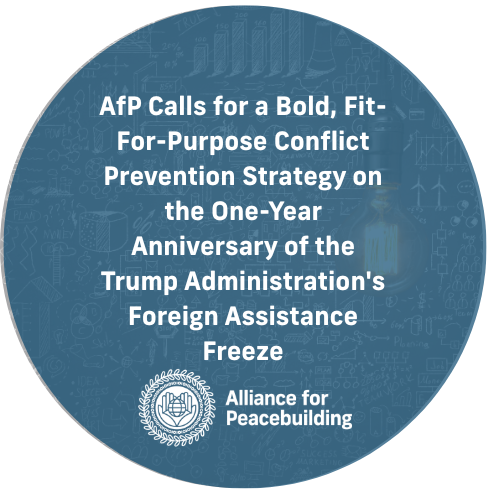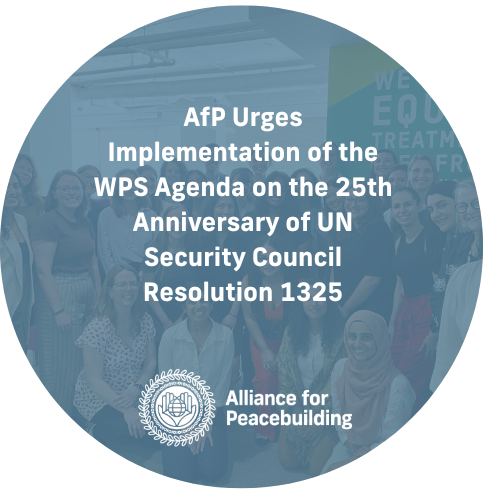The purpose of this research was to assess the effectiveness of interfaith cooperation programming across the peacebuilding landscape. This report explored the general characteristics of five interfaith cooperation programs – including explicit indicators, common measurement trends, and indicator examples – to determine what these interfaith cooperation programs were seeking to change, how they sought to do it, how they measured their success, and the degree of confidence in which we hold the reliability of the indicator. This report curated and analyzed reports covering five programs related to interfaith cooperation, using their evaluation reports.
Read MoreAt a time of increasing conflict around the globe and uncertainty about resources for peace efforts, developing robust evidence of dialogue effectiveness is needed to demonstrate dialogue’s impact and value. This guide, developed over several years with the input of numerous colleagues and partners, merges theoretical insights with practical tools to present an innovative dialogue monitoring approach designed to help practitioners and monitoring and evaluation (M&E) professionals identify and track meaningful progress made by dialogue programs in conflict-affected contexts. It supports a shift toward more systematic, evidence-based monitoring practices necessary to document the complexities and impacts of a diverse range of dialogues.
This guide can also be a resource for funders and implementing organizations as they strive to increase accountability for the design and implementation of effective dialogue programs. Learning at an organizational level requires a shared framework to analyze comparable data across diverse programming contexts and interventions. This guide will encourage the kind of comparable data collection needed to enable peacebuilders to better assess and document dialogue outcomes in more standardized ways. By helping funders and implementers gather and analyze data about dialogue outcomes across programs and types of interventions, the guide will facilitate the assessment of intervention effectiveness and identify areas for growth.
The purpose of this guide is to:
Equip dialogue practitioners to monitor dialogue projects;
Facilitate project- and organizational-level adaptation and learning about dialogue program implementation; and
Contribute to evaluation and scholarly study of dialogue practice and effectiveness by developing the evidence base for tracking contributions of dialogue to peaceful conflict resolution.
This assessment explores risks of mass atrocities in South Sudan due to increasing violence, the detention of senior officials, lagging progress in the implementation of the Revitalized Agreement on the Resolution of the Conflict in South Sudan (R-ARCSS) of 2018, and regional spillover from the violent conflict in Sudan. Compounding these drastically deteriorating conditions, South Sudan’s first elections since independence, originally scheduled for December 2024, have been postponed until December 2026. This assessment identifies plausible atrocity scenarios, key indicators to monitor, and recommended prevention and response options for the United States Government and the international community.
Read MoreThe Alliance for Peacebuilding (AfP), a network of 235+ organizations working to prevent violent conflict and build sustainable peace in 181 countries, recognizes that these are extraordinary times with significant cuts to U.S. foreign aid. AfP has long been a proponent of reforming diplomacy and foreign assistance, and championed major innovations through laws such as the Global Fragility Act (GFA). In rebuilding the U.S. foreign policy and assistance aperture, Congress must advance reform-focused laws that prioritize and integrate conflict prevention and peacebuilding, like the GFA, become centered to ensure the U.S. is safer, stronger, and more prosperous. We urge the 119th Congress to robustly fund, champion, and provide oversight of key peacebuilding and prevention laws and accounts and ensure conflict prevention expertise is retained at the Department of State.
Read MoreOn May 15th, PPWG AfP sent a letter from the Prevention and Protection Working Group (PPWG) to Secretary of State Marco Rubio urging him to prioritize atrocity prevention during the reorganization of the Department. At a time of record-breaking levels of violent conflict and rising mass atrocities, the proposed reorganization of the Department concerningly eliminates or downsizes several key offices and bureaus that are central to the successful implementation of the Elie Wiesel Genocide and Atrocities Prevention Act (EWGAPA), which Secretary Rubio co-sponsored and President Trump signed into law. Dismantling or deprioritizing the atrocities prevention and accountability offices and bureaus and terminating their experts will dramatically undermine the ability of the U.S. Government to implement EWGAPA and effectively respond to destabilizing mass atrocities and grave human rights abuses globally.
Read More







